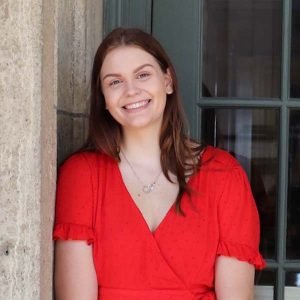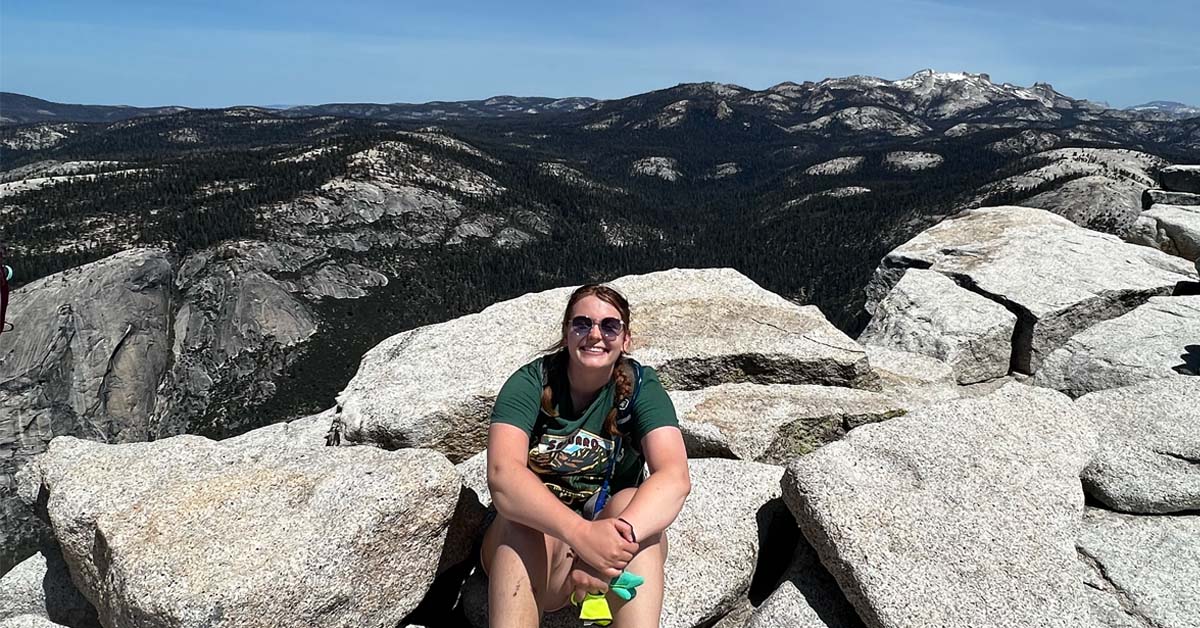"When patients arrived, they already had diabetes, hypertension, or other health issues that happened over their lifetime...I wanted to address nutrition and dietetics as systemic issues, and that’s when I started looking into public health."
First, I’d like to know a little bit about you as a person. Where did you grow up? Where did you attend undergrad and what was your degree/area of study?
[Isabelle] I grew up in Janesville, Wisconsin. I did my undergrad at the University of Wisconsin-Madison where I studied nutrition and dietetics, and minored in global health.
What drew you to public health? OR How did you become interested in public health? OR What was that moment in your life when you decided you wanted to study public health?
[Isabelle] My undergrad was very clinically focused; I learned a lot about counseling and other direct ways to support patients — but that’s after they’ve already entered that “patient” role. I recognized that there needed to be upstream measures to address issues related to nutrition. When patients arrived, they already had diabetes, hypertension, or other health issues that happened over their lifetime. So, I wanted to address nutrition and dietetics as systemic issues; That’s when I started looking into public health.

What specific issue, problem, or area of research in public health do you care the most about and why?
[Isabelle] I am interested in nutrition because unhealthy, highly processed foods are ingrained in American culture. But with the proper support, awareness, and access, we can help folks make changes that do not feel limiting while significantly improving their quality of life. I feel like the most important public health interventions of the past few decades are ones that become integrated into our daily lives and are accepted culturally.
Are you currently involved in any public health research or professional work?
[Isabelle] Yes! I am working with some other students and Jamie Stang on the “Latino/a/x Conversations” program, where we seek to connect with Latina/x women to help better serve them in the future. We’ve sought to answer tough questions about mental health, support, and responsibility. I worked on qualitative data and collaborated on a team to interpret it. It’s been a great experience and I love working on community-based interventions.
Why did you choose to come to the U of M School of Public Health?
[Isabelle] I chose the U of M School of Public Health because it is a renowned, top school of public health. It was also close to home and had a great nutrition program, so it was the perfect fit.
What are the reasons why you chose your program? What do you like about it?
[Isabelle] I already knew that SPH had an outstanding reputation, but it was my program coordinator, Amy Pleimling, that convinced me to join the program. She was honest with what my experience would be at SPH, and boasted a small, personable learning experience while also learning from expert faculty. I had no doubt that I would be receiving a very high-quality education.
In what ways is the school a good fit for you?
[Isabelle] I feel like the class are just the right size for me to learn and ask questions. The instructors here care so deeply about how their students perform, and I have felt that with every interaction I’ve had. Before I was admitted to the program, I felt like there was such a strong sense of community at SPH. I’m glad that I was right.
What is your vision for an antiracist school of public health?
[Isabelle] This may sound naive, but my vision for an antiracist school is one where the concept of “antiracism” is as embedded in the school as any other pillar of academia. It needs to be as fluid as the curriculum, and addressed in everything we talk about. I want to see a school where we can eventually move away from having to intentionally discuss antiracism, to having the expectation that this is our culture, one that promotes inclusivity and justice in every way possible.
What do you like about being in Minnesota?
[Isabelle] I love Minnesota! I live in Uptown, and everything is walkable for me. I like being on campus, hanging out in Uptown, while also visiting downtown — it feels like there is a little bit of everything. I also love the breweries here. There is just a vibrant culture in Minnesota and I will likely stay here after graduation. I feel like the cities have welcomed me with open arms.

